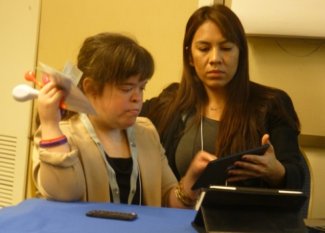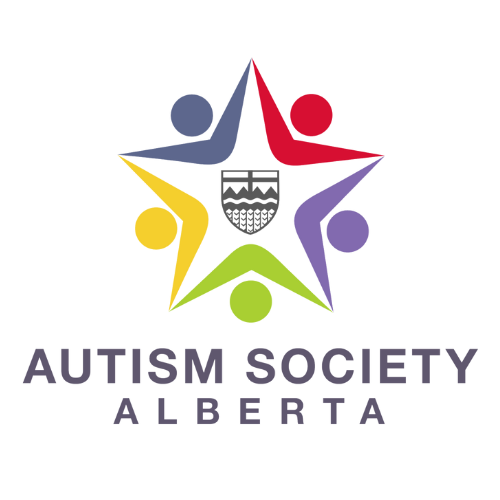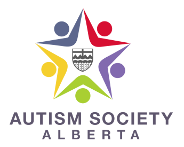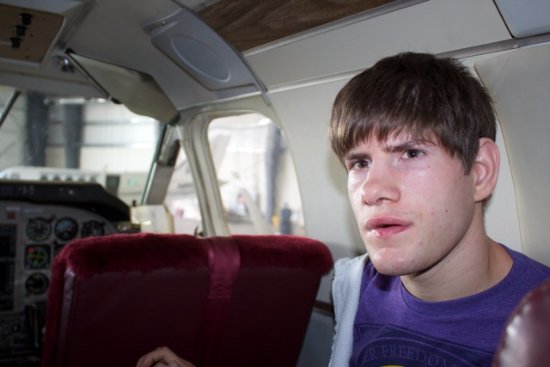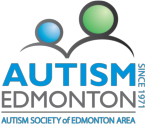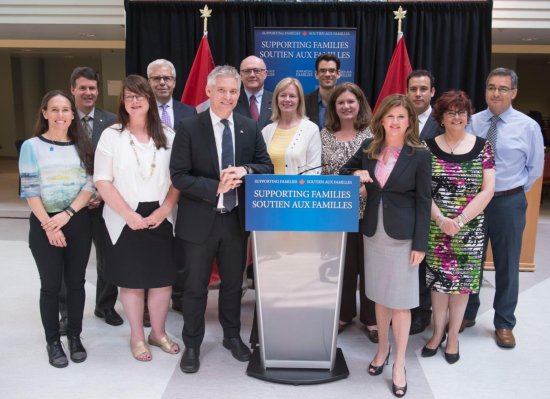Get Inspired At Autism Alberta’s Annual General Meeting!
Autism Alberta’s Annual General Meeting offers members (you!) a chance to find out what’s going on in Alberta and let us know what you’d like to see. You get to meet other families who may be sharing your experiences, and learn from those who can tell you what they did when they were at the same stage. You can also enjoy our enlightening and inspiring speakers!

Autism Alberta’s Annual General Meeting
10 AM to 3 PM
GH Dawe Centre
56 Holt St
Red Deer, AB
Business Meeting will begin at 10 AM
Lunch will be provided for those who RSVP
Speakers in the afternoon will include:
- Jessica Pigeau – A very articulate twenty-something who will tell us what it’s like to be on the autism spectrum. She will also answer your questions.
- Laurie Mawlam – The CEO of newly-formed Autism Canada, who will inspire us with the vision of this national autism organization. She will talk about how we can help shape policies and services, and how that will make a difference to our loved ones, ourselves and our families.
Can’t make it to Red Deer on August 15th? You’ll still be able to attend the AGM via live webcast. For details on how to join the webcast, watch your e-mail for an upcoming announcement, or keep checking www.autismalberta.ca.
Please RSVP to AGM@autismalberta.ca by August 13, 2015.
An Autistic Block in Progress
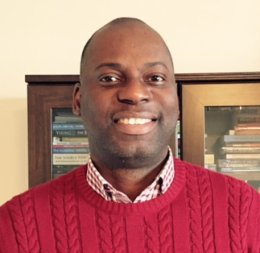
The following factors have been identified as being as associated with participation in post-high school employment:
- Annual household income
- Parental education
- Having good social skills
- Gender – female gender had higher participation rates
- The presence of co-morbid Developmental Delay
- Whether the child completed high school
- Whether the child received career counseling during high school
- Whether the child’s school contacted post-high school vocational training programs or potential employers
- The presence of co-morbid psychiatric disorders such as depression or social anxiety
- The severity of the ASD in terms of degree of obsessive behaviors, repetitiveness, etc.
The above factors have implications for professionals involved in the transition to the after-high school vocational care of people with ASD, as well as for their families. High schools can devote more resources to male children with ASD from low-income families. Efforts should be made to contact employers and post-high school educational institutions before high school graduation. More research needs to be done to further investigate the factors associated with post-high school participation in Alberta and Canada.
Central Alberta Parent Support Group Meeting
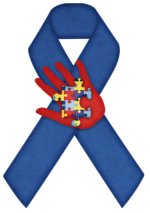
Parent Support Group Meeting
Monday, August 17
6:00 p.m – 8:00 p.m
G.H. Dawe – Activity Room 2, 56 Holt Street, Red Deer
Agenda:
- Upcoming Programs
- Parent Perspective
- Have your input into services you would like to see in Central Alberta
Upcoming Meeting: September 21 (October 19 will be a meeting for newly diagnosed families)
Ben’s Risky Business
Ben Kurtz, award winning photographer, has been snapping pictures since his high school graduation in 2009. He has a great eye for texture and line, so he enjoys photographing: fences, bridges, flowers, cars, and planes. He appreciates the sensory quality of taking a picture; it is all about pressing the button on the camera. Ben has classical autism: he communicates with gestures, pictures, and sounds. His photography is a window into his world.
Ben has taken photos at the Aviation Museum in Edmonton several times. There were smiles and lots of great pictures. An invitation to The Airco Aircraft Charters hangar promised a great experience. The hangar was large and on that day there were six planes available to explore with no “do not touch” signs posted anywhere. Ben chose a plane, approached then backed away. A number of planes were open to enter; Ben would not even get close to the narrow stairs leading into the aircraft. His communication was clear, “No thanks!” That was so unusual.
Remember the last time you stood on the edge of something exciting – maybe even risky? Remember the feelings of uncertainty and anticipation? Then you took the challenge and stepped into a new experience. After all that worry, it was fun and exciting! How often do people with autism get that same experience? Is it possible to take risks when we strive to keep everything so safe and not rock the boat because we want to avoid a meltdown at all costs?

What can we learn from Ben? Taking calculated risks can be rewarding. Start with something that is already an interest or passion and ask the question, “What else can we try that is connected to something that is already an interest?” I wish you a great adventure as you explore something new in the world of autism. Go for it!
Ben’s Photography can be seen on you tube under Autism Artistry Art Show. Interested in owning a photograph to hang in your office, home, or cabin? Contact Roma at roma.kurtz@telus.net.
The Cupboards Are Open at Autism Edmonton’s Food Pantry

Our members can access what they need at the Autism Edmonton office in a comfortable and dignified sensory-friendly environment.
Autism Edmonton’s Pantry is now open to members Monday through Friday, from 10:00am until 4:00pm. We also maintain a bulletin board in the Pantry, where members can find even more information about other food security resources in Edmonton.
Autism Edmonton’s Pantry is all about serving the needs of our most vulnerable members, and working with them to make sure they are able to access the services they need.
The ones who will benefit most are those least-equipped to deal with “larger” systems to get support, like securing government services or accessing appropriate health care.
Those who wish to support Autism Edmonton’s Pantry program can do so in the following ways:
- Donations of food and toiletries can be dropped off with the Edmonton Food Bank (our partners for this program). You can find a list of their drop-off centers at:
- Financial donations can be made to Autism Edmonton online at www.autismedmonton.org/donate, over the phone by calling (780) 453-3971 ext. 2, or in person at 11720 Kingsway Avenue.
How to Use the Pantry:
You must be an Autism Edmonton member to access the Autism Edmonton Pantry. Membership is free. If you are not a member, you can quickly sign-up online at www.autismedmonton.org or ask anyone in the office to help you join!
- First, sign in with our Autism Support Services Team in Room #116 at 11728 Kingsway Ave (on the left side of our main Office). If the door is locked, please try our main office at 11720 Kingsway Ave.
- We will collect your: first name, gender, age, and employment status (Employed, PDD/AISH, Unemployed/No Funding, etc.)
- Members start by taking a bag (we are able to provide bags, but we also encourage you to bring your own) and then selecting the different items they need.
- Members will have access to all Pantry items available in the fridge/freezer and food cupboards, including toiletries and gluten-free products. (*Some cupboards are for specific programs only, but our staff will help guide you through the process.) We do our “grocery shopping” once a week to keep items as well-stocked as possible.
- Suggestions can be made for specific items, though we can’t guarantee that we will be able to meet all requests. We encourage feedback, to help us bring in the items that our members need most, and try our best to match members’ preferences.
- First-time visitors can take what is necessary to meet their needs. Pantry access is limited to once a week.
if you have any questions or want to learn more about this program, please email Brooke Pinsky, Programs and Services Coordinator, at bpinsky@autismedmonton.org.
We Want to Hear From You!
Health Minister Rona Ambrose Announces Autism Spectrum Disorder Working Group
From RonaAmbrose.com:
Today, I had the pleasure of announcing the creation of the Autism Spectrum Disorder (ASD) Working Group. Our Government is committed to supporting partnerships that will help Canadians with autism and their families.The experience and expertise of the working group members and their dedication to making a difference for Canadians and their families will lead us to real solutions. Find out more here.
Transition Planning Resources

You may also access a variety of helpful resources on the FSCD website. There you will find a comprehensive Resource List, regularly updated to keep you informed of federal, provincial and community programs and resources that may be available to you.
You can also visit the Human Services Transition Planning webpage to learn more about Disability Services’ integrated approach to transition planning and how to develop a vision to guide your future planning. If you have any questions about transition planning, please contact your local Family Support for Children with Disabilities (FSCD) office.
What Do People With Autism Need Most?
Is autism a disease or disorder, or is it simply a neurological difference? Should we focus on finding a cure for autism, or should the emphasis be on accepting people as they are? Those are the questions raised by the movement known as “neurodiversity.” It challenges us to redefine autism and other neurological conditions not as problems to be fixed but as natural human variations like sex or ethnicity. To some people with autism, it’s a powerful message of empowerment. To others, it misrepresents the real challenges faced by people with severe autism and their families.
